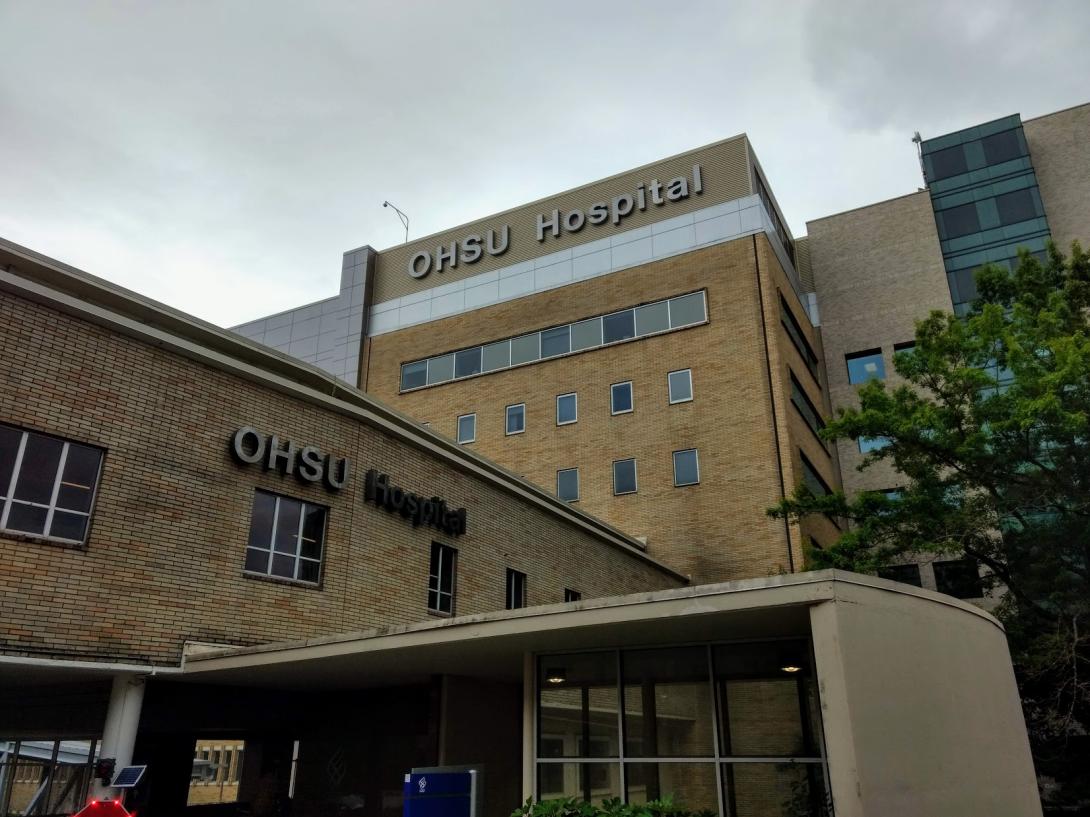
Oregon Health & Science University faces a shortage of critical blood products from the American Red Cross.
OHSU officials released a warning on the hospital’s internal server just over a week ago, advising providers to be sparing when using platelets -- tiny cells that stop bleeding.
That prompted providers to snap into an emergency drill, stretching low supplies while officials scrambled to replenish the stock of platelets from another supplier.
All the patients at OHSU who’ve needed platelets have received them, said Dr. Richard Scanlan, medical director of OHSU transfusion services.
He said providers have been splitting units of the cells to serve more patients and supplementing the platelet infusions with drugs that promote clotting.
“We do that for people who are stable,” Scanlan said. “We do not do that for people who are bleeding.”
Platelets are critical to trauma patients and those undergoing intensive surgeries. They’re also needed for cancer patients. In fact, they account for half of the platelet supply. Made in the bone marrow, platelets help form clots to fix damaged vessels. But they’re effectively destroyed by chemotherapy which targets fast-growing cells like those that form platelets.
The cells only have a five-day shelf life, and they cannot be produced in a lab. They have to come from individuals who are willing to devote the time to donate and qualify. Those with O and B negative blood types are not considered good donors. Blood banks want other blood types, like A, B, AB and O positive. Larger people with those blood types are the best candidates because they have more blood from which to pull the platelets.
The donation process takes about three hours, including filling out paperwork to qualify and then getting hooked up to a machine that pulls out blood, extracts the plasma and platelets and puts the red blood cells back into the body. Donors also need to rest a bit after their contribution.
Donors are in short supply, said Karen Ellis, manager for platelet and plasma collection for the Red Cross in the Portland area.
Only about 5 percent of the population donates blood and only about 10 percent of those give platelets, she said.
“There are not enough donors donating,” Ellis said. “That’s the bottom line. We need to get the word out for more donors to donate.”
She said the organization needs younger donors.
“We used to have a core group of Boomers and some of the Greater Generation who were brought up donating blood and thought of it as a civic duty during World War II and the Vietnam War,” Ellis said. “It is a little bit different now.”
Millennials have not grown up with the habit, she said.
“We are constantly looking for ways to educate them and bring in the door,” Ellis said. “If they understood the need, we’d have tons of millennials donating.”
The Red Cross, which does not have a blood shortage right now, has six donation centers in Oregon and Southwest Washington: Portland, Salem, Medford, Bend, Vancouver and Richland, Washington. The organization is the chief supplier for OHSU, which is one of its main customers.
Bloodworks Northwest, based in Seattle, is the principal supplier for Legacy Health, Providence Health & Services and PeaceHealth. It does not have a shortage right now and neither does Legacy, Providence or Kaiser Permanente.
It’s unclear why Bloodworks Northwest is not in the same predicament as the Red Cross. It does have twice the number of collection sites, however, including one in Vancouver, another in Eugene and 10 sites in Washington state.
“We provide blood to over 80 hospitals in the Pacific Northwest -- mainly western Washington and parts of Oregon, including about half of the blood supply of Portland,” said Vicki Finson, executive vice president for hospital services for Bloodworks Northwest. “We work hard every day to make sure local donors donate blood.”
Blood products are big business. Neither the Red Cross nor Bloodworks Northwest revealed how much the two blood products organizations charge for platelets. (A Red Cross spokeswoman said the organization does not charge extra for platelets but does recover expenses associated with the donations. She did not release those costs.)
Scanlan said platelets are the most expensive blood product that OHSU buys. It spends about $8 million annually on blood products, with platelets accounting for about a third of that expense. Scanlan estimated OHSU gives platelets to 6,000 to 8,000 patients a year.
The university has turned to Bloodworks Northwest for some supplies.
“We’re going to do everything we can to keep our fingers in the dike, Scanlan said. “If we have difficulty to long-term supply we will expand (our suppliers). Two suppliers may not be enough.”
You can reach Lynne Terry at [email protected].